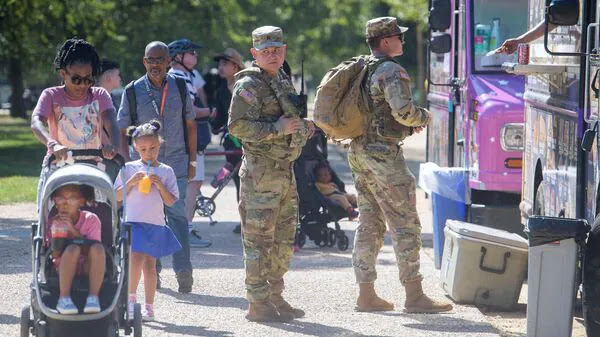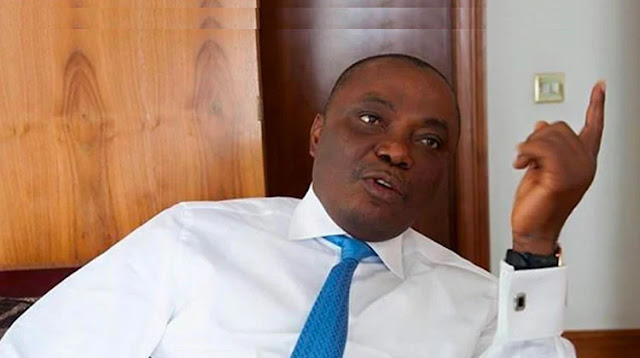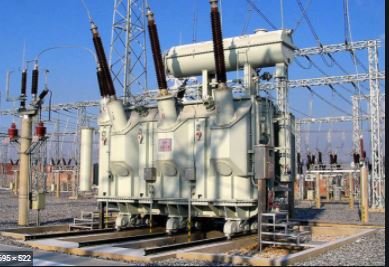Louisiana National Guardsmen stop to buy refreshments as they patrol the National Mall in Washington, Friday, Aug. 22, 2025. (AP Photo/Rod Lamkey, Jr.)(AP)
The Pentagon is reportedly formulating plans to deploy U.S. military forces to Chicago as part of President Donald Trump’s aggressive initiative to address crime, homelessness, and undocumented immigration, according to a report published by The Washington Post on August 24, 2025. The Defense Department has been exploring this option for several weeks, with proposals that include mobilizing several thousand National Guard troops as early as September. This move, which has sparked significant controversy, reflects Trump’s broader strategy of leveraging federal authority to intervene in Democratic-led cities, a tactic that has raised legal, ethical, and political questions. Illinois Governor JB Pritzker has vehemently opposed the plan, arguing that it represents an overreach of federal power and an attempt to manufacture a crisis for political gain. This article examines the motivations behind Trump’s focus on Chicago, the Pentagon’s planning process, the reactions from local leaders, and the broader implications for federal-state relations, public safety, and American democracy.
Trump’s Rationale: Why Chicago?
President Trump’s decision to target Chicago as the next city for a federal crackdown stems from his ongoing narrative of portraying Democratic-run urban centers as hotbeds of crime and disorder. On August 23, 2025, Trump declared, “Chicago is a mess,” singling out the city’s Democratic mayor, Brandon Johnson, and criticizing the local government’s handling of public safety. His remarks are part of a broader pattern of targeting cities led by Democratic politicians, including Washington, D.C., and Los Angeles, where similar interventions have been implemented. Trump’s rhetoric paints Chicago as a city plagued by violent crime, homelessness, and undocumented immigration, issues he claims require federal intervention to resolve.
Chicago, the third-largest city in the United States, has long been a focal point in national debates about urban violence. Despite recent data indicating significant declines in crime—homicides have fallen by more than 30%, robberies by 35%, and shootings by nearly 40% over the past year, according to Mayor Johnson—Trump has seized on the city’s historical reputation for violence to justify his proposed deployment. His comments reflect a continuation of his 2020 campaign strategy, where he frequently highlighted Chicago’s challenges to appeal to his base, particularly in suburban and rural areas where fears of urban crime resonate.
Trump’s focus on Chicago also aligns with his broader policy priorities, particularly his emphasis on cracking down on undocumented immigration. The city’s status as a “sanctuary city,” with policies limiting cooperation between local law enforcement and federal immigration authorities, has made it a frequent target of Trump’s ire. By framing Chicago as a city in crisis, Trump seeks to justify the deployment of federal forces as a necessary step to restore “law and order,” a phrase that has become a hallmark of his presidency.
The Pentagon’s Planning Process
According to The Washington Post, the Pentagon has been developing plans for a military deployment to Chicago for several weeks, with options that include mobilizing at least a few thousand National Guard troops as early as September 2025. The Defense Department’s planning also involves discussions about the potential use of active-duty forces, though this option is considered less likely due to its controversial nature. The Pentagon’s statement on August 24, 2025, was notably vague, stating, “We won’t speculate on further operations. The department is a planning organization and is continuously working with other agency partners on plans to protect federal assets and personnel.” This ambiguity has fueled speculation about the scope and intent of the proposed deployment.
The Pentagon’s preparations draw parallels to previous deployments under Trump’s administration. In June 2025, the administration sent 4,000 National Guard troops and 700 active-duty Marines to Los Angeles to address protests over immigration enforcement actions. Similarly, in Washington, D.C., more than 2,200 National Guard troops from multiple states have been deployed as part of Trump’s crime crackdown, with some troops authorized to carry firearms during patrols. These operations have been cited as a model for the Chicago mission, suggesting that the Pentagon is developing a scalable framework for deploying military forces in Democratic-led cities.
The use of the National Guard in domestic settings is governed by complex legal frameworks, including the Insurrection Act of 1807 and Title 32 of the U.S. Code, which allows the president to activate National Guard units for federal purposes. However, deploying active-duty troops for domestic law enforcement raises significant legal questions under the Posse Comitatus Act, which prohibits the use of federal military forces for domestic policing without congressional approval or a declared national emergency. The Pentagon’s consideration of active-duty troops in Chicago, even as a secondary option, has raised alarms among critics who see it as a potential violation of this law.
Illinois’ Response: Pritzker and Johnson Push Back
Illinois Governor JB Pritzker, a Democrat, has been a vocal critic of Trump’s proposed deployment, arguing that it is both unnecessary and illegal. In a statement issued on August 24, 2025, Pritzker said, “The State of Illinois at this time has received no requests or outreach from the federal government asking if we need assistance, and we have made no requests for federal intervention.” He emphasized that there is no emergency in Illinois that would justify deploying the National Guard or other military forces, accusing Trump of “attempting to manufacture a crisis, politicize Americans who serve in uniform, and continue abusing his power to distract from the pain he is causing working families.”
Pritzker’s response reflects a broader concern about the erosion of state sovereignty and the misuse of federal authority. Under federal law, the deployment of the National Guard within a state typically requires the governor’s consent, unless the president invokes the Insurrection Act or declares a national emergency. Pritzker has cited the Posse Comitatus Act, arguing that Trump lacks the legal authority to send federal troops to Chicago for the purpose of fighting crime. His stance is supported by Chicago Mayor Brandon Johnson, who has expressed “grave concerns” about the impact of an “unlawful deployment” of National Guard troops, calling Trump’s approach “uncoordinated, uncalled for, and unsound.”
Johnson has also highlighted the city’s progress in reducing crime, noting that Chicago’s investments in community-based violence prevention programs have contributed to significant declines in violent crime. At a South Side block party on August 23, 2025, Johnson presented an optimistic vision of the city, stating, “This is who Chicago really is. What’s being painted by the federal government is false. We love one another. We support one another. We put our arms around one another.” Both Pritzker and Johnson argue that militarizing Chicago’s streets would inflame tensions between residents and law enforcement, undermining trust and community-based public safety efforts.
The American Civil Liberties Union (ACLU) of Illinois has echoed these concerns, with spokesman Ed Yohnka arguing that the National Guard is ill-suited for domestic policing. “National Guard are not trained in order to be police officers, in order to collaborate and cooperate with communities. They’re trained to do militaristic operations, and so the idea that that’s the substitute is really a poor one,” Yohnka said. Local leaders, including Alderman Jason Ervin, have also expressed unease about the prospect of military vehicles patrolling Chicago’s streets, emphasizing the need for community-driven solutions over federal intervention.
The Political Context: A Test of Federal Power
Trump’s push for military deployment in Chicago must be understood within the broader context of his presidency and his approach to governance. Since taking office, Trump has repeatedly used the rhetoric of “law and order” to justify federal interventions in Democratic-led cities, often portraying these areas as failing under liberal leadership. His deployment of National Guard troops to Washington, D.C., and Los Angeles has been framed as a response to crime and unrest, despite data showing that violent crime in both cities has declined in recent years. For example, Justice Department data indicates that violent crime in Washington, D.C., hit a 30-year low in 2024, undermining Trump’s narrative of a city “awash in crime.”
Critics argue that Trump’s strategy is less about addressing public safety and more about consolidating power and appealing to his political base. By targeting cities like Chicago, which are led by Democratic mayors and governors, Trump can reinforce his image as a strongman leader while stoking divisions between urban and rural voters. His son, Donald Trump Jr., amplified this sentiment in a Newsmax interview, suggesting that the administration could expand its crackdown to other “craphole cities” like Portland and Seattle. This rhetoric has raised fears of a broader campaign to militarize urban areas, particularly those with progressive policies on issues like immigration and criminal justice reform.
Illinois Senator Dick Durbin has called Trump’s plan a “power grab” and a distraction from his administration’s policy failures. “Chicago is a beautiful, vibrant city with people from all walks of life … These unprecedented threats from President Trump are nothing more than a power grab to distract from his disastrous policies,” Durbin said. The senator’s comments reflect a growing concern among Democrats that Trump is using the military to advance a political agenda, potentially undermining democratic norms and federal-state relations.
Legal and Ethical Concerns
The proposed deployment of military forces to Chicago raises significant legal and ethical questions. The Posse Comitatus Act, enacted in 1878, explicitly limits the use of federal military forces for domestic law enforcement, except in cases of rebellion, insurrection, or when authorized by Congress. While the National Guard can be activated under Title 32 for federal missions, such deployments typically require coordination with state authorities. Trump’s previous deployments in Los Angeles and Washington, D.C., were met with resistance from local leaders, and a federal judge in California is currently reviewing whether the Los Angeles deployment violated federal law.
The use of active-duty troops, as reportedly considered by the Pentagon, would be even more controversial. Such a move would likely require Trump to invoke the Insurrection Act, a rarely used law that grants the president broad authority to deploy military forces domestically. The last significant use of the Insurrection Act was in 1992, when President George H.W. Bush sent troops to Los Angeles to quell riots following the Rodney King verdict. Invoking the act in Chicago, absent a clear emergency, could provoke legal challenges and accusations of authoritarianism.
Ethically, the deployment of military forces to address issues like homelessness and undocumented immigration raises concerns about the militarization of domestic policy. The National Guard is trained for combat and disaster response, not for addressing complex social issues like poverty or immigration. Critics argue that deploying troops to patrol urban streets could escalate tensions, alienate communities, and lead to human rights violations. The ACLU of Illinois has emphasized that public safety requires investment in housing, education, and community-based programs, not militarized interventions.
The Broader Implications
The Pentagon’s planning for a Chicago deployment signals a potential escalation in Trump’s use of federal power to influence domestic policy. By targeting Democratic-led cities, the administration is testing the limits of federal authority and challenging the principles of federalism that define the relationship between the federal government and the states. If successful, the Chicago mission could serve as a blueprint for similar interventions in other cities, as Trump has suggested with references to New York, Portland, and Seattle.
This approach has significant implications for American democracy. The use of military forces for domestic policing risks normalizing the presence of troops in civilian spaces, a practice more commonly associated with authoritarian regimes. It also undermines the autonomy of local governments, which are better positioned to understand and address the unique challenges facing their communities. In Chicago, where community-based violence prevention programs have shown promising results, a federal crackdown could disrupt these efforts and erode trust between residents and law enforcement.
The deployment also raises questions about the politicization of the military. By framing the National Guard as a tool to “straighten out” Democratic cities, Trump risks undermining the military’s reputation as a neutral institution. This could have long-term consequences for public trust in the armed forces and their role in American society.
Chicago’s Resilience and the Path Forward
Despite Trump’s portrayal of Chicago as a “mess,” local leaders and residents have emphasized the city’s resilience and progress. Mayor Johnson’s focus on community-based solutions, coupled with declining crime rates, suggests that Chicago is making strides in addressing its challenges. Governor Pritzker’s commitment to defending Illinois’ sovereignty and protecting its residents reflects a broader determination to resist federal overreach.
Moving forward, Chicago’s leaders will need to navigate a delicate balance. They must continue to address public safety and social issues while countering Trump’s narrative of a city in crisis. Community organizations, faith leaders, and local activists will play a critical role in advocating for solutions that prioritize investment in housing, education, and mental health services over militarized interventions.
At the national level, the debate over the Chicago deployment will likely intensify as the 2026 midterm elections approach. Democrats may use the issue to rally opposition to Trump’s policies, while Republicans could frame it as a necessary step to restore order in urban areas. The outcome of this standoff will have far-reaching implications for the balance of power between the federal government and the states, as well as the future of public safety policy in America.
Conclusion
The Pentagon’s reported plans to deploy U.S. military forces to Chicago represent a bold and controversial escalation of President Trump’s crackdown on crime, homelessness, and undocumented immigration. By targeting a Democratic-led city with a history of complex social challenges, Trump is testing the boundaries of federal authority and provoking a fierce response from Illinois leaders like Governor JB Pritzker and Mayor Brandon Johnson. The proposed deployment raises significant legal, ethical, and political questions, from the applicability of the Posse Comitatus Act to the broader implications for federal-state relations and democratic norms.
As Chicago braces for the possibility of National Guard troops on its streets, the city’s leaders and residents are pushing back with a message of resilience and community strength. The outcome of this standoff will not only shape Chicago’s future but also set a precedent for how the federal government engages with urban America. Whether Trump’s vision of “straightening out” Chicago comes to fruition or Pritzker’s defense of state sovereignty prevails, this moment underscores the deep divisions in American politics and the ongoing struggle to define the role of government in addressing society’s most pressing challenges.






